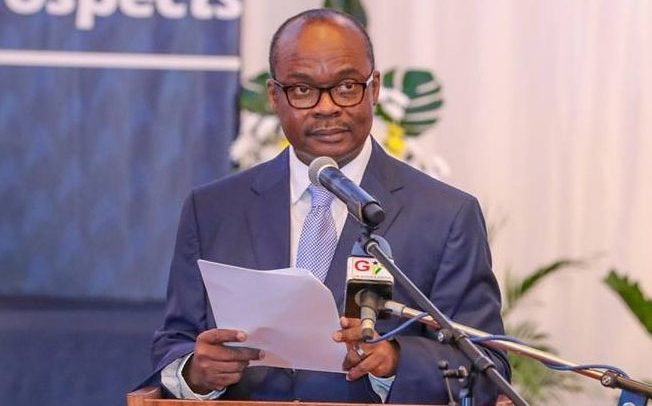As the Monetary Policy Committee (MPC) of the Bank of Ghana concludes discussions on a new policy rate this week to guide financial market activities over the next few months, the business community would crave for a cut in the rate so as to make lending cheaper, but the macroeconomic figures make such expectations far-fetched.
Even though the Bank of Ghana would like to cut the rate to ease lending for businesses, especially when it has maintained it for four consecutive times, a look at the macroeconomic indicators, i.e., inflation rate, exchange rate, and the fiscal figures, only point to one likely decision – that the policy rate will be maintained again, for the fifth consecutive time.
With regards to inflation rate, it is currently above the Bank of Ghana’s target of 8-10 percent, as it recorded 10.4 percent at the end of last year. And the MPC has persistently sought to use the policy rate to control inflation, especially to make it fall either below or within the target band. Therefore, with current inflation hitting above the bank’s own target, it will defeat its purpose of controlling inflation, should the policy rate be reduced, as it can increase money supply in the system.
Indeed, the MPC has constantly remained cautious in reducing the policy rate whenever inflation is moving toward the opposite direction or trending downwards at a slow pace. So, it makes the possibility of cutting the policy rate very remote at a time inflation uncertainty still remains.
Next is the exchange rate situation. Granted, the cedi’s depreciation against its major trading currencies has been the slowest in recent past years. For example, from year to date, it has depreciated against the US dollar by just 0.004 percent, thanks to the Bank of Ghana’s FX forward auction programme which sells the dollar at an auctioned rate every fortnight, thereby, taking away the age-old problem of speculation which has been partly responsible for the sharp depreciation of the cedi, especially in the first quarter of the year.
Despite the slow pace of depreciation of the cedi, there still exist potential shocks stemming from a rebound in international trade, as many countries have now opened their borders to trade. For this reason, the MPC would be cautious as it would like to observe how things will fashion out with regards to the exchange rate situation.
Then, the most important of all, the fiscal deficit. The onslaught of the pandemic on the economy increased government expenditure to abnormal levels. The COVID-19 related expenditure has widened the fiscal deficit figures and consequently public debt. Fiscal deficit is expected to hit 11.4 percent of GDP at the end of 2020; and the public debt is currently at unstainable levels, hitting 71 percent of GDP in September 2020. These figures quash any possibility of a policy rate cut as the same reason informed the MPC to maintain the rate at 14.5 percent at its last meeting. Hence, it is expected that same will be done this time, particularly when the fiscal situation is expected to worsen.
Giving his thoughts on this, economist at the University of Cape Coast, Professor John Gatsi, also said he doesn’t expect the MPC to cut the policy rate, considering the effect it may have on the economy, especially as the macroeconomic indicators do not support such a decision.
“The reduction in policy rate last year didn’t match the economic indicators. It was as a result of the central bank trying to contribute to ways of managing the situation [pandemic] on the effect of borrowing by households and businesses, particularly SMEs. Therefore, you will need to contain that over a period of time. I don’t think things have changed that much to result in a reduction in the policy rate. If you want to contain the situation, then the best thing is to maintain the policy rate.
Because if you take macroeconomic indicators such as inflation, you realise it has not been stable over the period; we also do know that exchange rate is not performing as we expect it to do, especially when demand for imports have gone down, one expected that depreciation of the cedi will moderate but the exchange rate does not seem to indicate quite clearly that.
Then, if you look at expenditure, it has not moderated, especially the expenditure related to fighting the COVID-19. So for me, putting all these things together, there is no compelling reason for a policy rate reduction unless the purpose of the reduction is not linked to the usual economic indicators that we know. And which, of course, will be very costly for us because if you reduce policy rate, the indication is that, some factors are favourable and you are responding to it, when in reality they are not,” he said in an interview with the B&FT.










